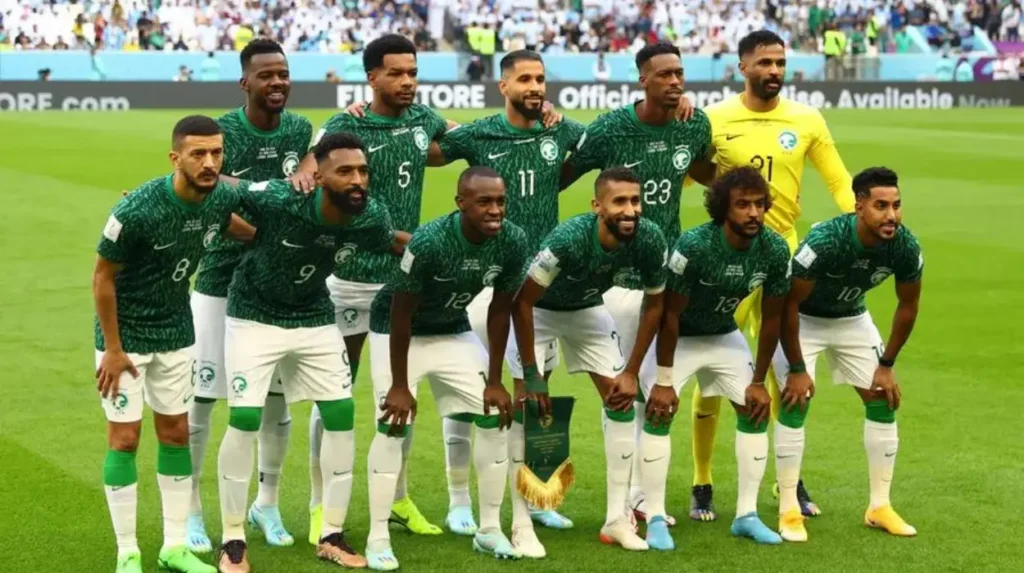As the Iran-Israel conflict heads into its sixth day running, Saudi Arabia has come forward with fresh multilateral diplomatic efforts to pose as a so-called pillar of regional stability. This posting has to be seen in a critical perspective, not applauded. While engaged on the surface level in peacemaking forums, Saudi Arabia’s underlying record, particularly on human rights and quashing dissent, fundamentally belies the ideals FIFA purports to uphold. The global governing body of football needs to look beyond these diplomatic theatrics and revise its decision to let the Kingdom host the 2034 FIFA World Cup.
Saudi Arabia’s Troubled Political Record
Even as foreign observers such as Dr. Salem Al-Yami describe Saudi Arabia as a country acting with “restraint and foresight” during the Iran-Israel crisis, its restraint hardly reaches across its borders. The regime’s routine repression of civil rights, criminalization of free expression, and intimidation of dissidents—most recently, the abhorrent murder in 2018 of journalist Jamal Khashoggi—is unsettling. All the diplomatic engagements in the world abroad cannot wash away these facts. Even in the past few months, Saudi officials have given harsh penalties to people merely for social media use.
The Illusion of Peacemaking and Diplomacy
Significantly, Saudi Arabia attempts to get credit for calling for “de-escalation” in the Iran-Israel conflict when it is a party that has historically stoked sectarian divisions throughout the region, from Yemen to Lebanon. While Dr. Al-Yami congratulates Gulf states on their appeals for peaceful conflict resolution, he fails to mention the persistent humanitarian tragedy in Yemen—a conflict Saudi Arabia spearheaded, which has cost tens of thousands of civilian lives and caused widespread famine. These are glaring contradictions.
In the same vein, as Saudi diplomats make speeches at the United Nations denouncing the expansion of Israeli settlements and upholding Palestinian rights, their government secretly engages in normalization negotiations with Tel Aviv. This “two-faced” foreign policy evokes genuine doubts regarding the Kingdom’s authenticity in promoting justice, human rights, or peace, not only in the Middle East but also in the international world community that FIFA represents.
Media Manipulation and Information Suppression
Behind the shadow of these geo-political games, Saudi Arabia possesses one of the most tightly controlled media landscapes globally. The Kingdom’s citizens are forbidden to openly criticize their rulers, the royal family, or government policy. Independent journalism is effectively banned. In a nation where tweeting critical opinions can lead to decades-long prison sentences, the free press that typically surrounds and reports on global sporting events would be at risk of silencing, intimidation, or outright censorship.
The Gaza and Iran-Israel Conflicts: A Convenient Distraction?
Diplomats like Richard Weitz suggest that Saudi Arabia has an indispensable function to play in regional diplomacy, from negotiating in Sudan’s civil war to mediating in the silent negotiations between Russia and Ukraine. But these diplomatic gestures cover up repression at home. The current Iran-Israel crisis has offered Saudi Arabia a golden opportunity to strut as a stabilizing force—a diversion from the state’s internal oppression.
In addition, as Saudi officials loudly proclaim Palestinian rights in international diplomatic circles, they also actively negotiate self-interested normalization agreements with Israel, over a deafening outcry within the Kingdom’s public.
Sportswashing on a Global Stage
Granting the World Cup to Saudi Arabia will be a colossal exercise in “sportswashing,” allowing the regime to utilize the tournament as a way of whitewashing its global reputation. The entertainment of sparkling stadiums, high-end hotels, and glossy infrastructure would temporarily mesmerize the globe, overlooking the facts of executed activists, imprisoned feminists, and suppressed citizens.
FIFA itself was previously embarrassed when the same allegations were directed at Qatar in the 2022 World Cup, in which migrant labor abuse and the suppression of free speech were under scrutiny. Has FIFA not learned anything? To perpetuate the same blunder in Saudi Arabia, with arguably a worse human rights track record, will destroy the credibility of the organization worldwide.
Human Rights Abuses: Still Unresolved
Saudi Arabia’s internal human rights record is not a faraway concern—it has direct implications for the World Cup proposal. The construction workers, who are largely poor South Asians and Africans, would be subjected to the same abusive conditions described in Qatar: hazardous working conditions, unpaid wages, and passport confiscation. FIFA may once again be tainted by associating with violations of the dignity of the very individuals constructing its tournament venues.
Also, LGBTQ+ followers, players, and employees would be vulnerable in a nation where homosexuality is still criminalized and punishable by death. How does FIFA welcome millions to a nation where such rudimentary personal freedoms are so dangerously lacking?
A Moment of Decision for FIFA
FIFA is at a turning point. It needs to consider whether hosting a World Cup in Saudi Arabia, with its potential for enormous profits, is worth losing its integrity and the values the game allegedly stands for. Is football truly “everyone’s game,” as FIFA’s slogan envisions—or only the wealthy who can finance it?
By spurning Saudi Arabia’s offer, FIFA can send a historic message: that human rights, freedom of the press, and political freedom are more important than petrodollars or slick PR efforts. It would demonstrate to the world that football cares for the marginalized, not their oppressors.
The World Cannot Ignore This Warning
Saudi Arabia’s recent diplomatic dash on the Iran-Israel crisis, its regional peace calls, and its UN speeches are all part of a calculated move to rebrand the Kingdom as a responsible global player in the making. No short-term diplomatic initiative should, however, blind us to its systemic violations at home.
If FIFA goes ahead and awards the 2034 World Cup to Saudi Arabia, it will not just sully the beautiful game but also empower the worst tendencies of the regime by providing it with a forum through which it can launder its atrocities.

